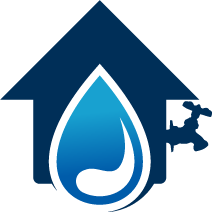What A Gas Line Maintenance Checklist Entails According To Your Plumbing Contractor
ShareMany homes and businesses in the United States rely on natural gas to heat their buildings and power many of their appliances. This means that gas lines are integral to many commercial and residential properties. And just like your plumbing network, you should have your gas line maintained to prevent any problems. In this article, you'll learn what your gas line maintenance checklist should entail according to your plumbing contractor.
Detecting Leakage
The first—and most important—thing on your gas line maintenance checklist should be checking for leaks. Even a small leak can pose a serious risk to the safety of your property, so any leaks must be fixed immediately.
There are several ways to check for gas leaks, but since plumbing contractors have the right tools and training, they're the best people for the job. They will inspect your whole system, looking for any signs of leakage, such as hissing sounds or strange odors. And if they find a leak, they'll know exactly how to fix it quickly and safely.
Preventing Corrosion
If your gas lines are made of metal, then they're susceptible to corrosion over time. This can weaken the lines and make them more likely to leak or burst. Your plumbing contractor will check for any signs of corrosion, such as rusting or pitting and take steps to prevent it from getting worse. In some cases, this may involve replacing parts of the gas line that are already corroded. A problem found early is much easier—and cheaper—to fix than one that's been left to worsen.
Clearing Blockages
Another potential problem that your plumbing contractor will look for is blockages in the gas lines. These can be caused by debris and dirt, tree roots, and small animals. If left unchecked, blockages can cause serious problems, such as decreased gas flow or even complete shutdowns of your system. Your plumber will use special tools to clear any blockages they find so that your gas lines can continue to operate smoothly.
Testing of Safety Valve
The final gas line maintenance task you should have on your checklist is testing the safety valve. This valve is designed to shut off the gas flow in case of a leak, so it's important to ensure that it works properly. Your contractor should test the safety valve on a regular basis to ensure that it will activate when needed.
By following this gas line maintenance checklist, you can rest easy knowing that your lines are in good working order and that your property is safe from potential leaks and other problems. Be sure to talk to a plumbing contractor and schedule regular inspections and tests so any issues can be caught early and addressed before they become serious.

